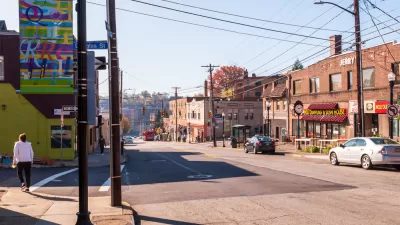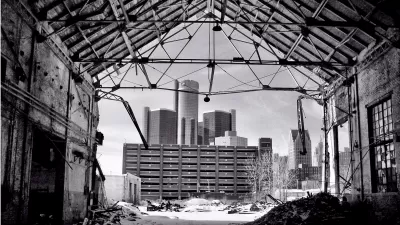For nearly all of my adult life, I have lived in small towns or urban neighborhoods. But for the past two years, I have lived in sprawl. When I moved to Jacksonville two years ago, I moved to Mandarin, a basically suburban neighborhood about nine miles from downtown. As I looked for apartments in 2006, I noticed that in many ways, Mandarin is typical sprawl: our major commercial street (San Jose Boulevard) is as many as eight lanes in some places, and even most apartments are separated from San Jose’s commerce. [See http://atlantaphotos.fotopic.net/c872477.html for my photos of Mandarin and other Jacksonville neighborhoods.] I thought Mandarin would be a typical suburb: homogenously white and upper-middle class.
For nearly all of my adult life, I have lived in small towns or urban neighborhoods. But for the past two years, I have lived in sprawl. When I moved to Jacksonville two years ago, I moved to Mandarin, a basically suburban neighborhood about nine miles from downtown. As I looked for apartments in 2006, I noticed that in many ways, Mandarin is typical sprawl: our major commercial street (San Jose Boulevard) is as many as eight lanes in some places, and even most apartments are separated from San Jose's commerce. [See http://atlantaphotos.fotopic.net/c872477.html for my photos of Mandarin and other Jacksonville neighborhoods.] I thought Mandarin would be a typical suburb: homogenously white and upper-middle class.
But in fact, Mandarin has the same kind of social mix as some of Jacksonville's more urban neighborhoods. Like many urban neighborhoods, Mandarin has rich and not-so-rich blocks: the rich live in Mandarin's western edge along the St. Johns River, the areas between the river and San Jose Boulevard (our major commercial street) are middle-to-upper-middle class, and the areas east of San Jose are more humble. And Mandarin has a few apartment complexes, which tend to be not so fancy: my own complex (the most expensive in the area, and the only one west of San Jose) is dominated by retirees, and others are dominated by working-class families of all races. Our retail is not just "big box" stores like Target and Wal-Mart: we have Brazilian, Russian and Asian supermarkets, as well as a variety of ethnic restaurants.
But Mandarin's diversity is not always a good thing: just as residents of walkable urban neighborhoods often don't go north of street X or east of street Y at night in order to avoid crime, Mandarin has a bona fide rough area - a street full of highly affordable apartment complexes where there have been at least two murders in the past two years. And I've been confronted by panhandlers twice in the last few weeks. I worry that Mandarin may be turning into one of Jacksonville's declining inner suburbs, a place forsaken both by urbanites who prefer more walkable neighborhoods and by suburbanites who prefer newer, safer suburbs.
So what have I learned from my years in Mandarin? That both the optimists and the pessimists about suburbia are right. Optimists correctly point out that suburbia is inheriting the diversity of cities- not just their ethnic and economic diversity, but their diversity of commercial forms: the notion that Wal-Mart is a natural monopoly is, in the setting of a large city, simply rubbish.
But pessimists are correct in worrying that as suburbs inherit urban diversity, they may inherit urban crime and decay.

Planetizen Federal Action Tracker
A weekly monitor of how Trump’s orders and actions are impacting planners and planning in America.

Chicago’s Ghost Rails
Just beneath the surface of the modern city lie the remnants of its expansive early 20th-century streetcar system.

San Antonio and Austin are Fusing Into one Massive Megaregion
The region spanning the two central Texas cities is growing fast, posing challenges for local infrastructure and water supplies.

Since Zion's Shuttles Went Electric “The Smog is Gone”
Visitors to Zion National Park can enjoy the canyon via the nation’s first fully electric park shuttle system.

Trump Distributing DOT Safety Funds at 1/10 Rate of Biden
Funds for Safe Streets and other transportation safety and equity programs are being held up by administrative reviews and conflicts with the Trump administration’s priorities.

German Cities Subsidize Taxis for Women Amid Wave of Violence
Free or low-cost taxi rides can help women navigate cities more safely, but critics say the programs don't address the root causes of violence against women.
Urban Design for Planners 1: Software Tools
This six-course series explores essential urban design concepts using open source software and equips planners with the tools they need to participate fully in the urban design process.
Planning for Universal Design
Learn the tools for implementing Universal Design in planning regulations.
planning NEXT
Appalachian Highlands Housing Partners
Mpact (founded as Rail~Volution)
City of Camden Redevelopment Agency
City of Astoria
City of Portland
City of Laramie





























